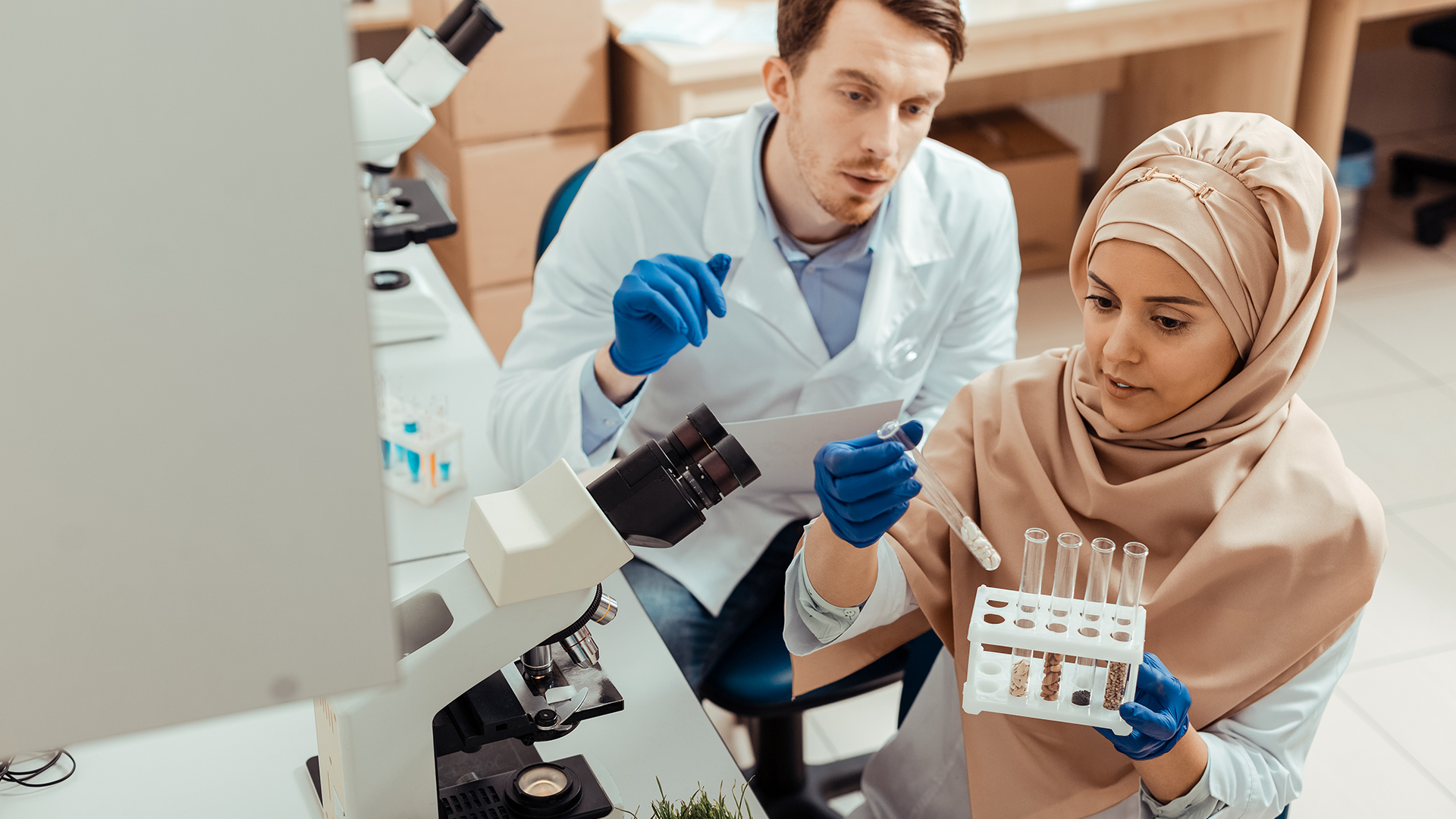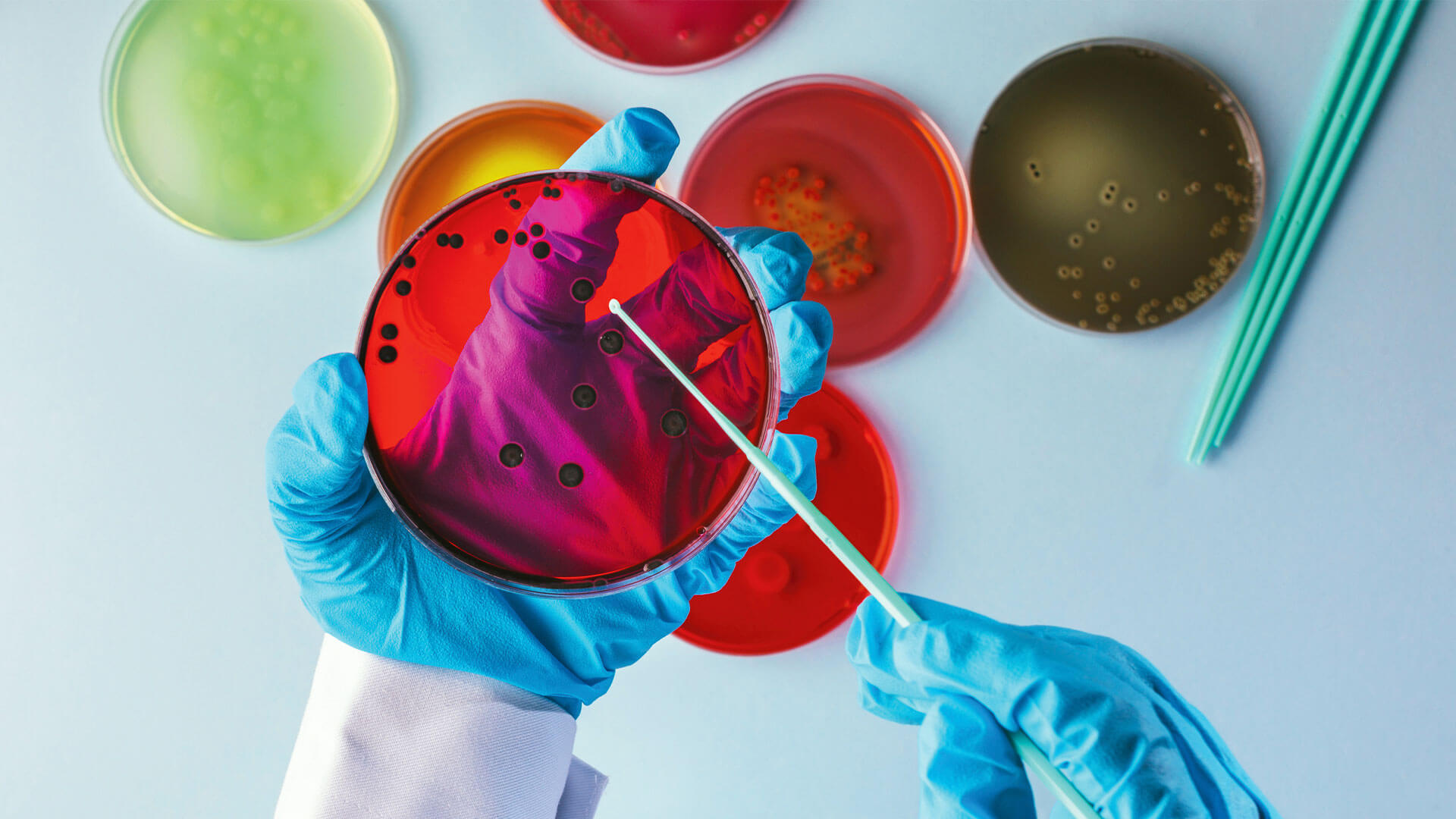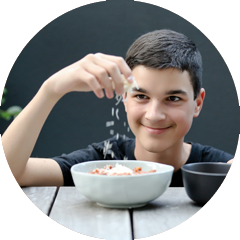BREAKTHROUGHS
WHY CLINICAL TRIALS ARE IMPORTANT
Clinical trials help make scientific discoveries a reality and improve health outcomes for coeliac disease. Here's what they involve.
By Angela Tufvesson
Naomi Turnbull was diagnosed with coeliac disease while she was living in Japan, where knowledge of the condition is often low and the number of delicious foods containing gluten frustratingly high. She was lucky to find a doctor who “thought I was a medical novelty and was so excited to help me,” which inspired a career change to nursing on her return to Australia. It was then that she discovered clinical trials.
“I had become a nurse and I wanted to contribute to research about coeliac disease without being a researcher,” she says. “I realised the best way I could contribute was to become a participant.”
Naomi signed up for an eight-week clinical trial for a drug that it’s hoped protects the stomach from gluten. For four weeks she took the drug at the same time each morning, with the option to pull out of the trial at any time. Despite feeling the effects of having to consume gluten for the last two weeks, she says the experience was worthwhile. “I’d definitely put my hand up again as it’s something I can contribute to – it’s my way of helping to advance research,” she says. “I would highly recommend it.”
TOWARDS THE PROMISE OF NEW TREATMENTS
Future drug therapies are in development with the hope that they may offer alternatives to a strict gluten-free diet and improve the long-term outcomes of coeliac disease. But before these drugs can be made available in your local pharmacy, they must be tested to check whether they work for the intended purpose and for any side effects.
“Randomised double-blind controlled trials have become the standard way to test whether drugs or an intervention is effective,” says Dr Bob Anderson, chair of Coeliac Australia’s Medical Advisory Committee, gastroenterologist and internationally renowned researcher in the field of coeliac disease. “They require a sufficiently large number of volunteers to be able to achieve a statistically significant result, and people must be treated for long enough to measure change.”
Participants are randomly assigned to either new (drug) or standard (control) treatment groups, and because the trials are blind, participants don’t know to which group they’ve been assigned. “Efforts to make sure that drugs are safe before they’re tested in people are very stringent,” Dr Anderson adds.
It’s only in the last 15 years that clinical trials for coeliac disease have become commonplace, Dr Anderson explains. “We are applying a whole lot of new tools to see whether the gluten-free diet is as effective as we thought it was, and to really understand basic things about coeliac disease-like symptoms,” he says.
PARTICIPATING IN A CLINICAL TRIAL
Katherine Tindall has been signing up for clinical trials since 2018. Along with her sister, who also has coeliac disease, she has participated in everything from smaller clinical trials that require a blood test to a longer clinical trial where she collected stool samples after consuming gluten.
The most complex was a clinical trial for the holy grail of research: a vaccine for coeliac disease. “There was a series of appointments, blood tests, doctors’ reviews and learning to inject myself with either a placebo or a vaccine,” Katherine says.
Dr Anderson says most clinical trials require at least a three-month commitment and attending appointments in person. You’ll be screened to find out if you meet the eligibility criteria and may be required to have an endoscopy and produce evidence of your diagnosis. “If you were diagnosed 20 years ago, you may not be able to find that paperwork and therefore you’re excluded,” he says.
Many clinical trials involve eating gluten to cause an immune response. Katherine says the benefits vastly outweigh any short-term discomfort. “To see how the results of clinical trials can impact the lives of the future people who are going to be diagnosed with coeliac disease is really special,” she says.
Dr Anderson agrees that participating in clinical trials gives you the opportunity to make a real difference to health outcomes for yourself and others with coeliac disease. “You’re involved in something that is ultimately going to yield a drug for coeliac disease,” he says. “We don’t know which drug, but there definitely won’t be a drug if people with the condition don’t get involved in the trials.”
READ THIS NEXT

HAVE YOU HAD YOUR PNEUMOCOCCAL VACCINE?
If you have coeliac disease, you might be at risk of reduced spleen function and serious infection. Research now points to the vaccine that will help.

HOW MUCH GLUTEN IS REALLY SAFE?
Around the world, medical experts and individuals with coeliac disease face the same question: how much gluten is ‘safe’? Here’s what the research shows.

WHAT DOES ‘MAY CONTAIN GLUTEN’ MEAN?
What does ‘may contain gluten’ on a food label mean? Should you avoid these products? Here’s what you should know.
See more















Intresting article